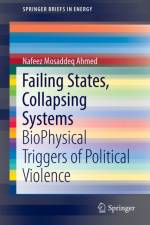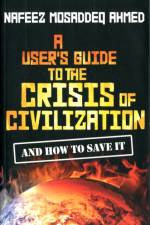- BioPhysical Triggers of Political Violence
av Nafeez Mosaddeq Ahmed
797
This work executes a unique transdisciplinary methodology building on the authorΓÇÖs previous book, A UserΓÇÖs Guide to the Crisis of Civilization: And How to Save it (Pluto, 2010), which was the first peer-reviewed study to establish social science framework for the integrated analysis of crises across climate, energy, food, economic, terror and the police state. Since the 2008 financial crash, the world has witnessed an unprecedented outbreak of social unrest in every major continent. Beginning with the birth of the Occupy movement and the Arab Spring, the eruption of civil disorder continues to wreak havoc unpredictably from Greece to Ukraine, from China to Thailand, from Brazil to Turkey, and beyond. Yet while policymakers and media observers have raced to keep up with events, they have largely missed the biophysical triggers of this new age of unrest ΓÇô the end of the age of cheap fossil fuels, and its multiplying consequences for the EarthΓÇÖs climate, industrial food production, and economic growth. Contrary to widely reported claims across mainstream media of a new era of prosperity heralded by the shale boom, the proliferation of contemporary climate, food and economic crises have at their root the common denominator of a fundamental and permanent disruption in the energy basis of industrial civilization. This inevitable energy transition, which will be completed well before the close of this century, entails a paradigm shift in the organization of civilization. Yet for this shift to result in a viable new way of life will require a fundamental epistemological shift recognizing humanityΓÇÖs embeddedness in the natural world. For this to be achieved, the stranglehold of conventional models achieved through the hegemony of establishment media reporting ΓÇô dominated by fossil fuel interests ΓÇô must be broken. Although the book offers a rigorous academic analysis, it is written in a clean, journalistic style to ensure readability and accessibility to a general audience. It will contain a large number of graphical illustrations concerning oil production data, population issues, the food price index, economic growth and debt, and other related issues to demonstrate the interconnections and correlations across key sectors.


